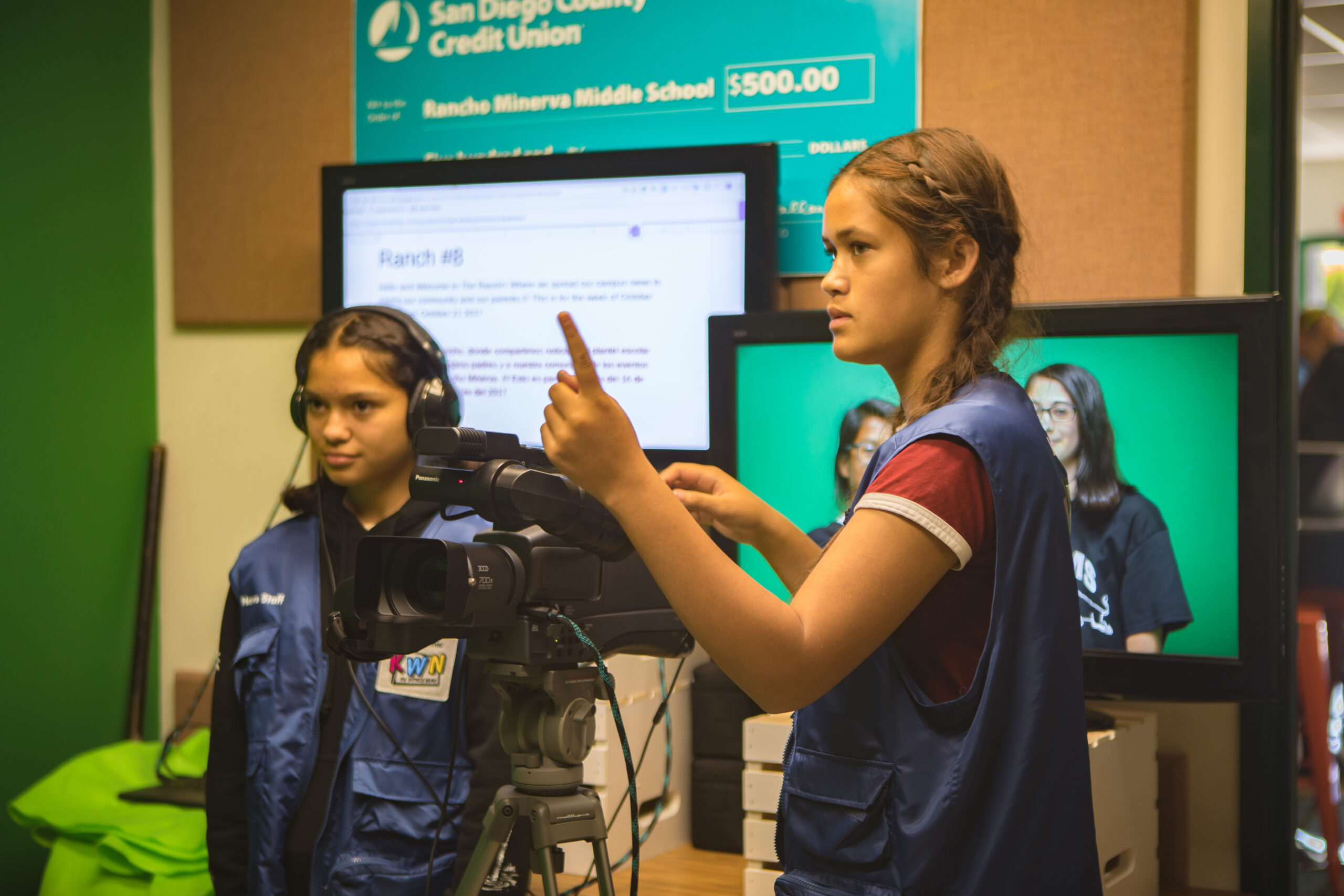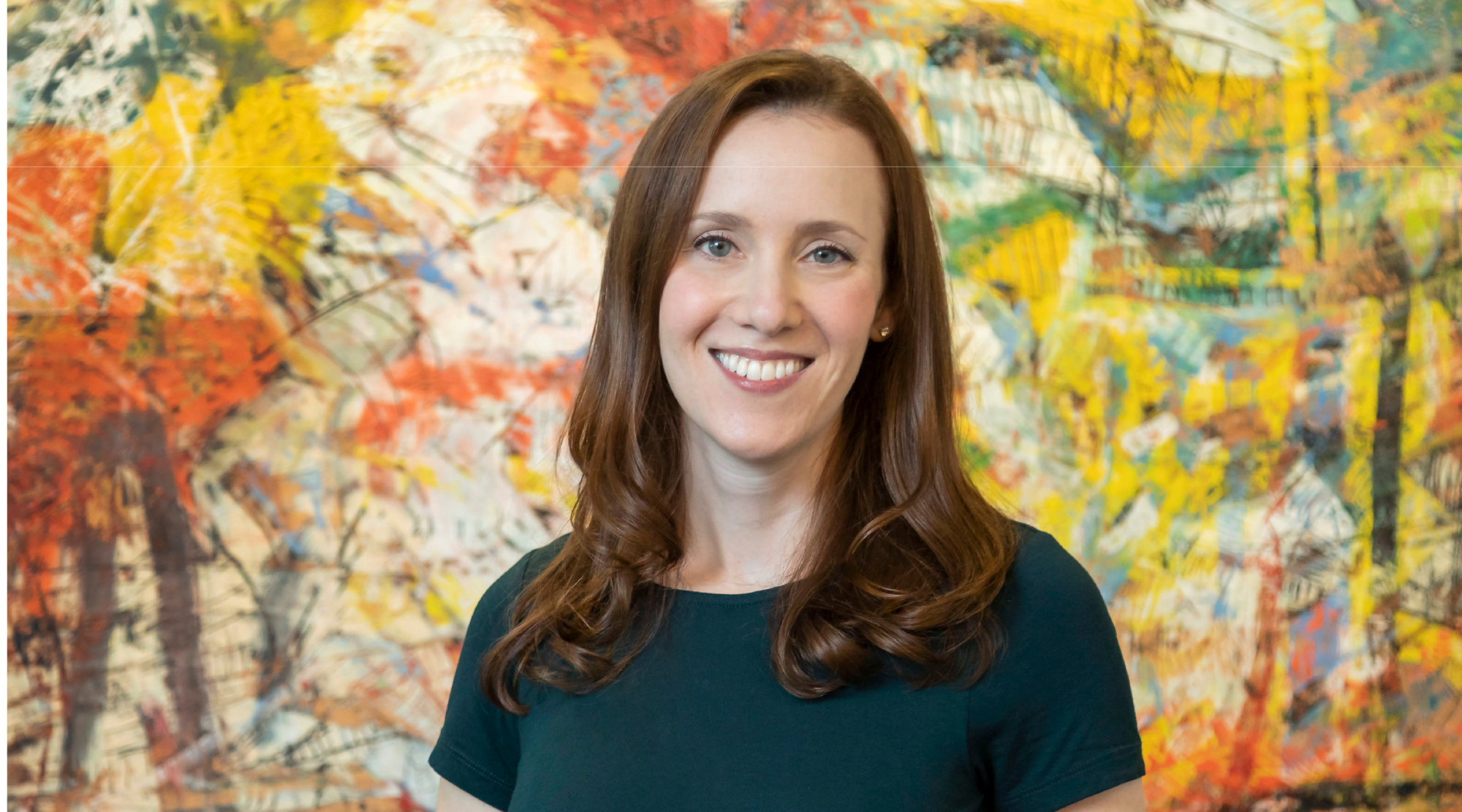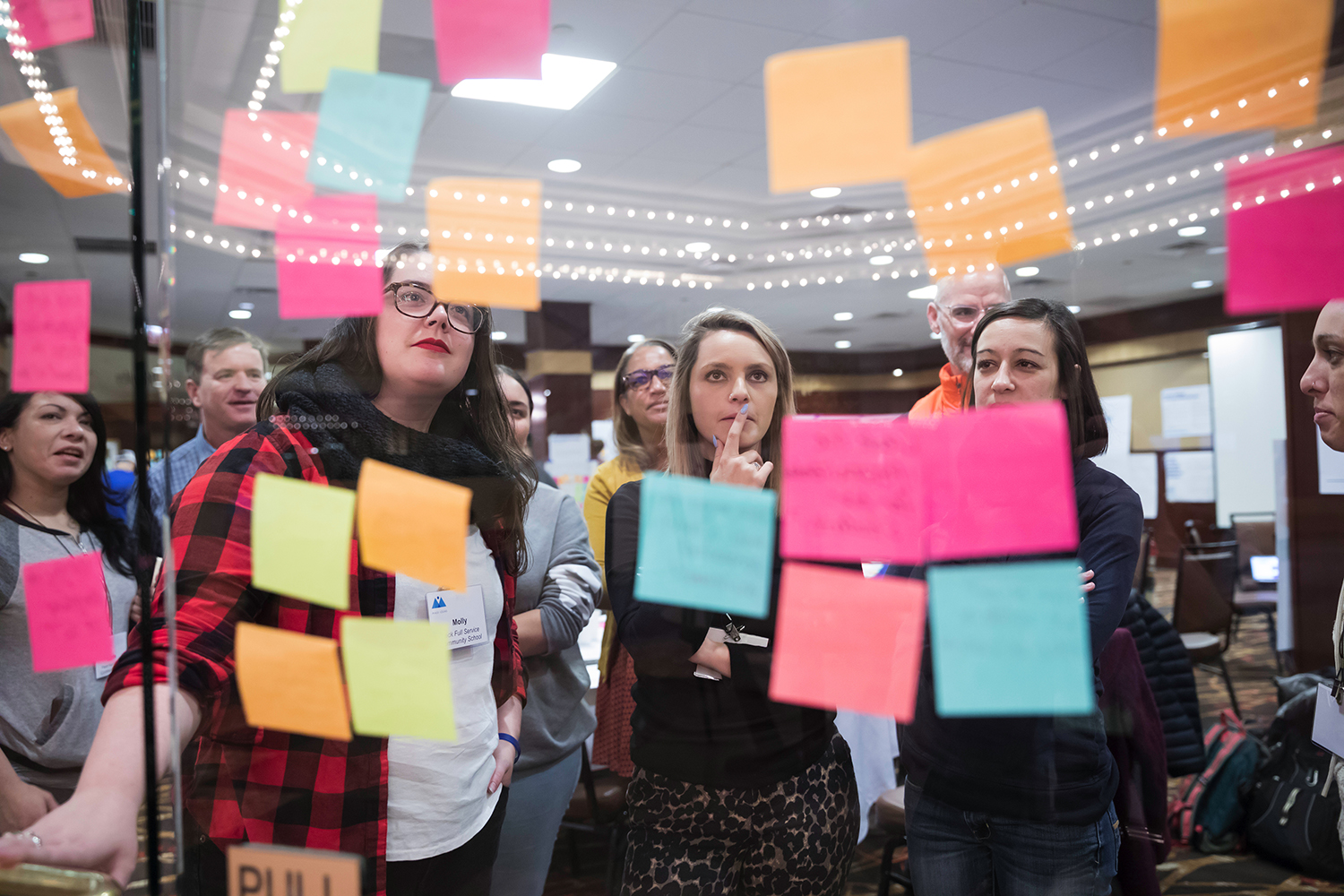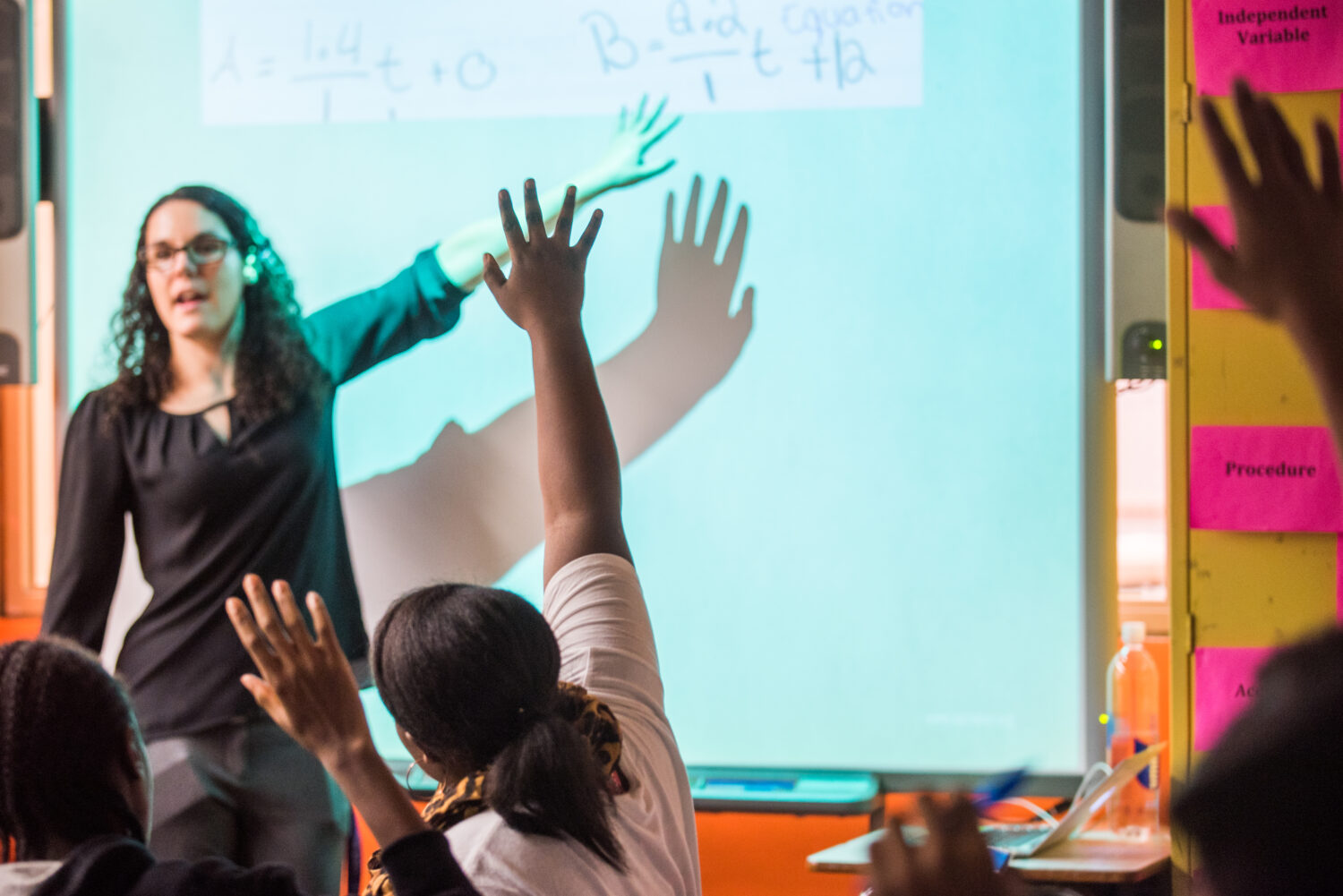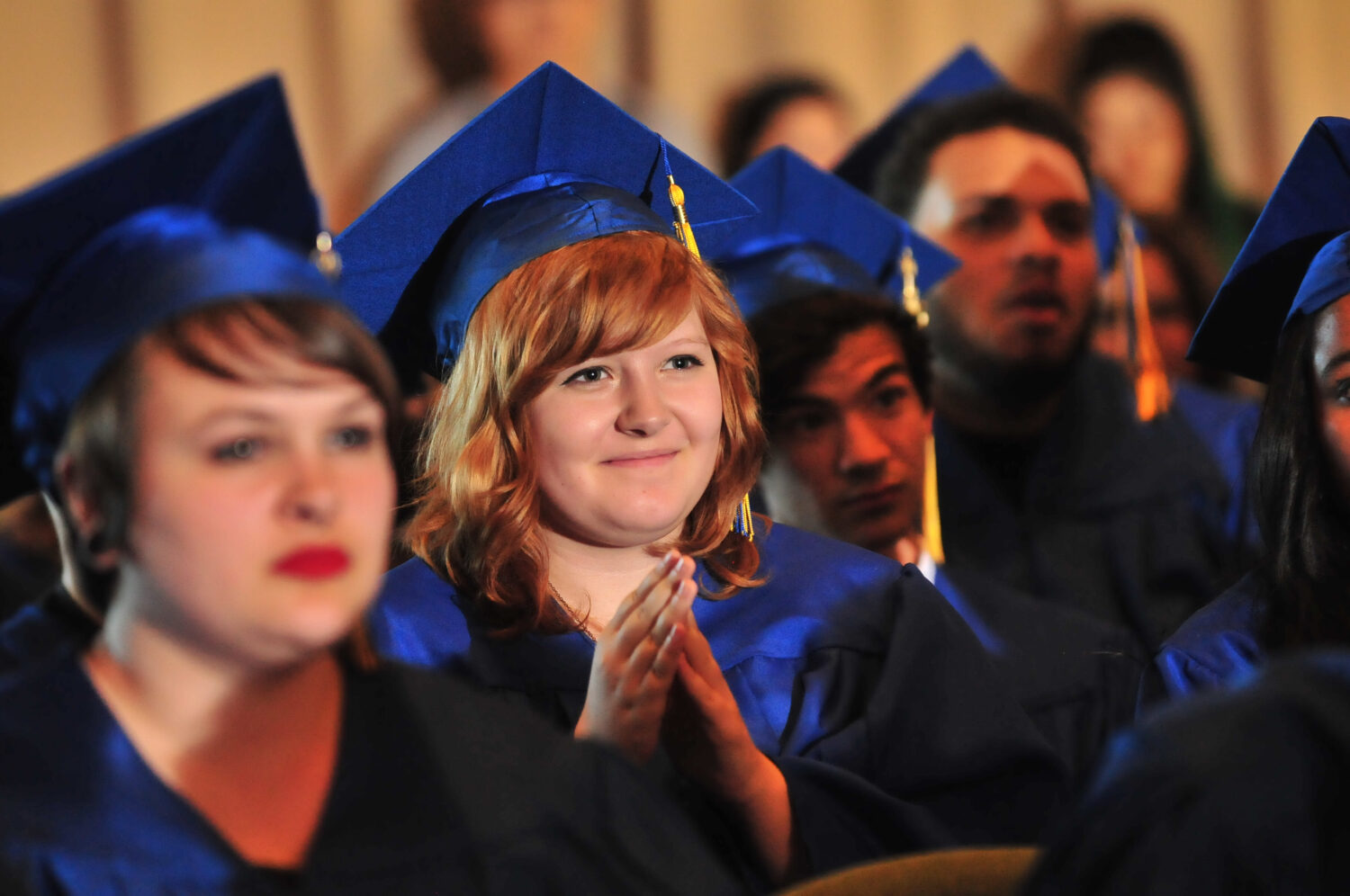Tell us how you got started in education. What was your journey like before Barr?
I come from a family of educators. In college, I started to put names and concepts to the different experiences I’d had across my own schools and what I’d seen in the schools where my family members worked. Studying sociology, education, and the structural inequities across our school system really lit a fire in me. While I was in college, I was a writing tutor for high school students in Boston. After I graduated, I taught sixth grade through the organization Citizen Schools at the Edwards Middle School and then worked at Boston Arts Academy, both Boston public schools. I loved being around the energy of young artists in Boston. I went to graduate school to learn more about school and system design, and then started in a newly created role in the Boston Public Schools central office when I graduated. I was interested in supporting teachers and principals to create the kinds of classrooms where students would be excited to learn.
Who was your favorite teacher and why?
I’ve had a few teachers, including my parents and a number of colleagues, that have really encouraged and pushed me. I think the teacher who’s had the biggest impact on my career path was my professor at Tufts University, Steve Cohen. He is a skilled question-asker and thought-provoker. He made me think about things differently. He gave us an assignment to design our ideal high school. He pushed us to think deeply about equity. He created a course for us to visit and learn about different schools. He taught me how to go into a school and try to really understand what might be happening. He made me excited about what’s possible in education. On top of all that, he also taught me where to find good bagels in Boston.
In your most recent role, you worked with school leaders in Boston Public Schools to support teachers. Could you tell us a bit more about that? What did you learn?
I learned a lot about how a district can support schools and how I could serve as a bridge between schools and central office. I loved my job because I got to go into many different classrooms across the city and see the incredible work teachers and principals were doing from early childhood all the way through high school. I learned a lot about the challenges schools can face and the kind of conditions that produce excellent teaching and learning. This role taught me about what it means to be a supportive partner by giving and receiving feedback, asking good questions, and listening well.
What’s one particularly inspiring project or school that you’ve worked with? What was so inspiring about that experience?
Senior Grant Night at the Boston Arts Academy is one of my favorite examples of the amazing work students and schools can do. Every senior identifies an issue in their community that they are passionate about, and then comes up with a way to use their art form to address that issue. They write a grant proposal and present it to community members for feedback. The issues that students identify and the solutions they come up with are really incredible, and so is the event itself. It brings together so many community members to support students’ learning in a real way. It gives me a lot of hope for our future to see this kind of learning and work—I’ve been so inspired every year I participated. Through my role at Barr I am excited to support high schools to create meaningful, deep learning experiences that all students consistently engage in as a core part of school.
What are two lessons that you bring with you from working inside a large public school district to Barr?
The first lesson is the importance of trusting relationships. I hope to be someone who inspires trust and openness, and who earns it by being a thoughtful partner and listener. The second lesson is about the complexity of schools and of change. Every school and every community is different, and even though they might share similar strengths or challenges, it’s important to learn as much as possible about their specific context in order to actually be a helpful partner and advocate.
You’ve been at Barr for four months now. What have you been up to?
My first big project at Barr was launching a request for proposals from communities who want to build a portrait of a high school graduate. The RFP was an opportunity for communities to deeply plan what they want their high school students to know and be able to do when they graduate. Schools can use this as a tool for aligning and clarifying priorities. We’re excited to partner with some new communities across New England! I’ve also been working on concepts for three learning communities—one to support Portrait of a Graduate grantees, and the others to support high school grantees across the Catalyze New Models portfolio.
Has anything surprised you in your first few months?
One pleasant surprise has been the smaller office community. I’ve felt really welcomed here, like I’ve joined a family. People ask me how I’m doing and they really care.
What’s one fun fact we should know about you?
I love food! I actually have a spreadsheet of my favorite restaurants organized by meal and neighborhood. I’m always open to trying to new places, so please make recommendations. And I am happy to share my spreadsheet with anyone who isn’t sure where to eat when they’re in Boston.
